Facilities

Towing tank
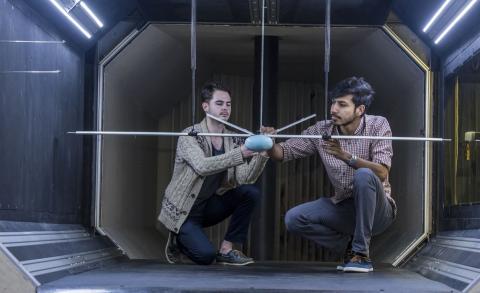
Maritime Engineering Science: Naval Architecture (MSc) starting September 2024 for 1 year
Develop in-depth knowledge of maritime engineering science on this master’s course at the University of Southampton. You’ll learn about the design and analysis of marine craft and structures in the marine environment, and gain specialist understanding of the key areas of naval architecture. You'll graduate with the skills to become a naval architect or to continue your studies at PhD level.
This Maritime Engineering Science: Naval Architecture MSc is one of 5 maritime engineering science specialisms you can study at the University of Southampton.
Each one gives a broad overview of the key concepts of maritime engineering science while allowing you to pursue your own interests or career plans by focusing on a particular area.
It's ideal if you have an engineering, science or maths background and want a career in the maritime sector. You don’t need to have specialist knowledge of ship science already – we'll teach you what you need to know.
On this course you’ll take specialist modules allowing you to explore the key concepts of naval architecture, such as:
You’ll also undertake an experimental or numerical research project, and benefit from our Southampton Marine and Maritime Institute research network and our world-class maritime engineering facilities, including the largest towing tank in a UK university.
We regularly review our courses to ensure and improve quality. This course may be revised as a result of this. Any revision will be balanced against the requirement that the student should receive the educational service expected. Find out why, when, and how we might make changes.
Our courses are regulated in England by the Office for Students (OfS).
Your course leader is Dr Gabriel Weymouth, an associate professor for the Southampton Marine and Maritime Institute at the University of Southampton. His main areas of interest are mechanics and maths. He is currently working on unsteady fluid dynamics and nonlinear fluid/structure interaction. Read Dr Weymouth’s staff profile to find out more about his work.
If you'd prefer to study a different specialism, you can apply for one of our other MSc Maritime Engineering Science pathways:
This master's programme is accredited by the Institution of Mechanical Engineers (IMechE), the Royal Institution of Naval Architects (RINA) and the Institute of Marine Engineering, Science and Technology (IMarEST) as meeting the academic requirement for Further Learning, for Chartered Engineer and Chartered Marine Engineer registration. Candidates must hold a BEng/BSc undergraduate first degree that is accredited for Chartered Engineer (CEng) registration to comply with full CEng registration requirements.
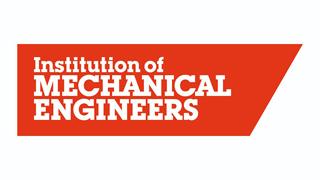
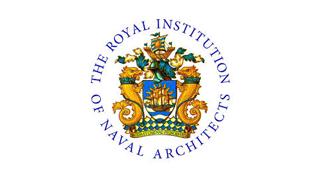
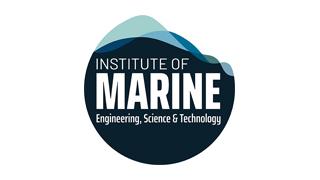

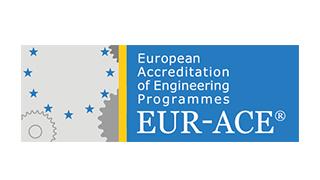
“While I was working in the shipbuilding industry, I decided to study for a master’s to strengthen my theoretical expertise. Learning from industry experts from Lloyd’s Register and the Wolfson Unit has been especially useful, providing advice and current skills needed in industry.”


This course is based at Boldrewood.
This qualification is awarded by the University of Southampton.
The Course Description Document details your course overview, your course structure and how your course is taught and assessed.
You’ll need a 2:1 degree in:
We might also consider you if you have a degree in oceanography or architecture, or are studying at a marine academy.
Find the equivalent international qualifications for your country.
If English isn't your first language, you'll need to complete an International English Language Testing System (IELTS) to demonstrate your competence in English. You'll need all of the following scores as a minimum:
We accept other English language tests. Find out which English language tests we accept.
If you don’t meet the English language requirements, you can achieve the level you need by completing a pre-sessional English programme before you start your course.
If you don’t meet the academic requirements, you can complete a pre-master's programme through our partnership with ONCAMPUS. Learn more about the programmes available.
If you don't have the exact entry requirements, but you have significant work experience in this sector we’ll assess your relevant professional experience, your subject knowledge and your aptitude for learning.
Your application will be considered on individual merit and you may be asked to attend an interview.
Please contact us if you're not sure you have the right experience or qualifications to get onto this course.
Email: enquiries@southampton.ac.uk
Tel: +44(0)23 8059 5000
This is a full-time master’s course studied over 12 months.
In the first 8 months (semesters 1 and 2) you'll study the taught part of your course.
This is made up of modules that everyone on the course takes, and modules we’ll ask you to choose from a list of options.
For the last 4 months, over the summer, you’ll work independently to research and write your dissertation. You’ll have one-to-one meetings with your supervisor during this time to discuss your progress.
Want more detail? See all the modules in the course.
The modules outlined provide examples of what you can expect to learn on this degree course based on recent academic teaching. As a research-led University, we undertake a continuous review of our course to ensure quality enhancement and to manage our resources. The precise modules available to you in future years may vary depending on staff availability and research interests, new topics of study, timetabling and student demand. Find out why, when and how we might make changes.
You must study the following modules :
This fundamentals module is aimed primarily for the MSc students in Maritime Engineering Science and students on the MECH/Navel Engineering programmes. It provides them with the essential knowledge of Maritime Engineering required for their subsequent stu...
Within the context of your programme of study, students will undertake independent, original and critical research on a relevant topic. Students will then communicate the research objectives, methodology, analysis, results and conclusions effectively both...
This module extends the fundamentals of fluid mechanics in the context of naval architecture and ocean engineering including water waves and the fluid loading and motion of maritime structures and vessels in waves. Students will assess the concepts of add...
This module extends the fundamentals associated with the structural design of floating maritime vessels to account for the complexity of fluid-structure interactions on ship life and operation. Students will assess the impact of fluid-structure interacti...
In view of the Engineering Council’s support for the development of engineering degrees that will equip students to become professional engineers, the module follows the European Network for Engineering Accreditation guidelines to contribute to graduate a...
Maximising the propulsive efficiency of ships is key to their economic effectiveness and in minimising their emissions of CO2, NOx and SOx. Advances in ship performance require a detailed understanding of the fluid dynamic mechanisms which control the flo...
You must also choose from the following modules :
The basic concept of Computational Fluid Dynamics and numerical procedures (FVM/FDM) are introduced. The major focus is practical applications, including geometry and grid generation, using solvers and turbulence models in CFD packages, and interpretation...
This module introduces students to formal design search and optimization (DSO) approaches using a mixture of lectures covering theory and practice and a series of worked case studies with student participation.
In this module, the emphasis moves away from alloy development and design, and focuses on the performance of structural materials in a range of engineering applications. The lectures draw on examples from applications of ceramics, steel, Al, Ti and Ni bas...
Many real-world engineering structures are too complex for their behaviour to be understood using an ‘exact’ analytical or theoretical method alone. Therefore, in practice we often use approximate numerical or simulation-based tools for structural analysi...
This module extends the structural analysis principles to marine structural design and assessment, building on the fundamentals established in the previous “materials and structures” and “ship structural design and production” courses. Students will asses...
This module introduces the theoretical and practical design of maritime robotics systems such as autonomous underwater and surface vehicles (AUVs, ASVs). Students will be introduced to the theoretical principles underlying their design including aspect...
Offshore infrastructure forms a key part of our global communication, energy generation, material transport and environment monitoring networks. This module examines the general engineering concepts and analytical techniques that are fundamental to design...
The atmospheric and gravitational processes present on the earth generate flows of wind and water. This module studies these resources and practical methods/technologies for extracting cost-effective electrical and other energy conversions. The main focu...
This module provides the fundamental concepts associated with the principles of manoeuvring and control theory, with a focus on vehicles operating on or below the air water interface. There is one assignment which integrates manoeuvring hydrodynamic data...
This module covers the performance and design of a variety of high performance small craft: namely semi-displacement, planing craft and catamarans as well as sailing yachts, hydrofoils and hovercraft. It will examine the basic mechanics and fluid dynamics...
The learning activities for this course include:
We’ll assess you through:
You’ll research and write a dissertation on a subject of your choice, to be agreed with your supervisor.
The project is a chance for you to develop your research skills and show in-depth knowledge of your chosen subject.
We'll assign you a personal academic tutor, and you'll have access to a senior tutor.
With this degree you'll be in strong demand as a naval architect or marine architect. Jobs in this area have good starting salaries and excellent career progression opportunities.
Our graduates work across many different organisations. The Solent region around Southampton is the main UK hub for the maritime sector, home to employers such as:
Organisations such BAE Systems, QinetiQ and Babcock support the defence sector and employ a number of our graduates. The offshore and marine renewable development industries offer excellent prospects both to work in the UK or globally in locations such as Singapore, Houston or Perth.
We're a top 20 UK university for employability (QS Graduate Employability Rankings 2022). Our Careers, Employability and Student Enterprise team will support you throughout your time as a student and for up to 5 years after graduation. This support includes:
We have a thriving entrepreneurship culture. You'll be able to take advantage of:
Fees for a year's study:
If you're an international student on a full-time course, we'll ask you to pay £2,000 of your tuition fees in advance, as a deposit.
Your offer letter will tell you when this should be paid and provide full terms and conditions.
Find out about exemptions, refunds and how to pay your deposit on our tuition fees for overseas students page.
Your tuition fee covers the full cost of tuition and any exams.
Find out how to pay your tuition fees.
Accommodation and living costs, such as travel and food, are not included in your tuition fees. Explore:
If you’re a graduate of the University of Southampton, you could be eligible for a 10% discount on your postgraduate tuition fees.
This can help with course fees and living costs while you study a postgraduate master's course. Find out if you're eligible.
A scholarship of £5,000 is available to international students studying for a postgraduate master’s in Engineering.
Find out more about the Southampton Engineering Deans International Scholarship, including eligibility and conditions.
A variety of additional funding options may be available to help you pay for your master’s study. Both from the University and other organisations.
Find out about funding you could get as an international student.
For further details, read our step by step guide to postgraduate taught applications.
The deadline to apply for this course is Wednesday 3 July 2024 - midday UK time.
We advise applying early as applications may close before the expected deadline if places are filled.
The deadline to apply for this course is Wednesday 3 July 2024 - midday UK time.
We advise applying early as applications may close before the expected deadline if places are filled.
We’ll ask you to pay a £50 application assessment fee if you’re applying for a postgraduate taught course.
This is an extra one-off charge which is separate to your tuition fees and is payable per application. It covers the work and time it takes us to assess your application. You’ll be prompted to pay when you submit your application which won’t progress until you've paid.
If you're a current or former University of Southampton student, or if you’re applying for certain scholarships, you will not need to pay the fee. PGCE applications through GOV.UK and Master of Research (MRes) degree applications are also exempt. Find out if you’re exempt on our terms and conditions page.
When you apply you’ll need to submit a personal statement explaining why you want to take the course.
You’ll need to include information about:
References are not required for this programme.
Please include the required paperwork showing your first degree and your IELTS English language test score (if you are a non-native English speaker) with your application. Without these, your application may be delayed.
You'll be able to track your application through our online Applicant Record System.
We will aim to send you a decision 6 weeks after you have submitted your application.
If we offer you a place, you will need to accept the offer within 30 working days. If you do not meet this deadline, we will offer your place to another applicant.
Unfortunately, due to number of applications we receive, we may not be able to give you specific feedback on your application if you are unsuccessful.
We treat and select everyone in line with our Equality and Diversity Statement.
Please contact us if you're not sure you have the right experience or qualifications to get onto this course.
Email: enquiries@southampton.ac.uk
Tel: +44(0)23 8059 5000